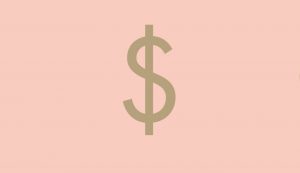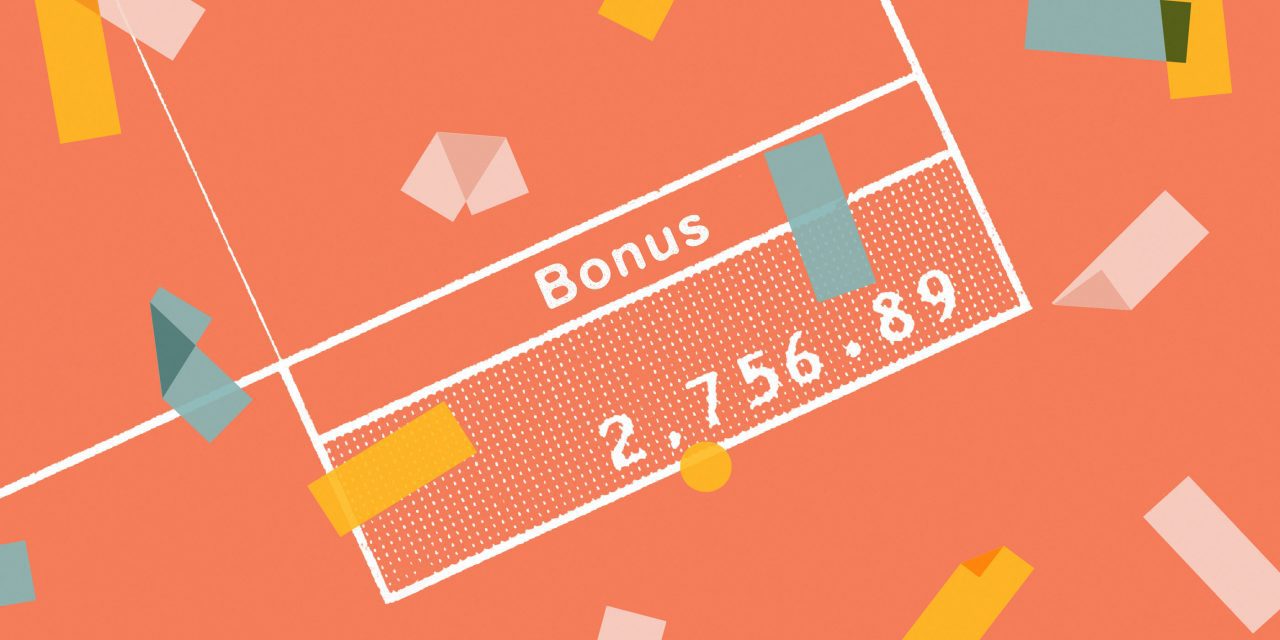Congratulations! You got a bonus! Or a really nice Christmas gift in the form of a cheque. Or any old windfall. Here’s how to use it to build wealth.
Bonuses. They’re magical things. Sometimes you’re expecting them — Wall Street is famous for these, the kind you count on, the kind that often come with lots of zeros. Sometimes you’re not — maybe you happened to do an insanely good job this year, or maybe the company did exceptionally well and the bosses are good enough not to hoard the profits. The thing to remember is that bonuses are the same as any chunk of money one comes into, and as such, the smartest strategy for your bonus is the same as the smartest strategy for folks who get a big Christmas gift or a small inheritance from their great aunt. (Our advice for great-aunt-inheritors is, likewise, the same as our advice to Wall Street bonus-getters.)And no, our advice is not “a new Tesla would look great with those shoes.”To design a guide for bonuses (and other windfalls), we talked to two learned money experts: Andrea Coombes, an investing and retirement specialist for NerdWallet, who’s spent 16 years helping people manage their finances better; and our own Michael Allen, Wealthsimple portfolio manager, who helps design our clients’ money strategies.First rule? “If you’re getting a bonus this year, the most important thing is get it out of your chequing account,” Coombes says. Not only are you earning terrible returns, but “that’s the best way for it to disappear without your even realizing it.” And after that? Here’s our five step plan.
#1 Wipe Out Your High-Rate Debt
If you’re paying double-digit interest on anything — credit cards often come with rates of more than 18%, and some student loans can be particularly brutal, for instance — use your bonus to pay that debt off before you do anything else. Your first priority should always be to eliminate any debt with “an interest rate that’s higher than what you could earn on that money somewhere else,” Coombes says. The stock market’s historical long-term returns are about 7.5%.
Michael Allen advises Wealthsimple clients to pay off any debt with a rate higher than 5%.
And keep an eye on your overall debt as well. “We recommend to our clients that they keep a debt to income ratio that’s no more than 2.5:1,” Allen says. So multiply your income by 2.5 — if that number is smaller than the outstanding debt you have, it’s probably a good idea to pay it down.
#2 Establish an Emergency Fund
Allen recommends keeping an emergency fund of between three and six months of living expenses. This will give you peace of mind in case you lose your job or can’t work for other reasons. Coombes says it’s also a good idea to keep some money handy in case of unforeseen expenses — your transmission turns into garbage, your roof turns into a sieve, a tree falls on your helipad. That way you won’t need to go into (high-interest) debt to deal with it. “Those one-off expenses are bound to happen, but you don’t necessarily have them covered in your monthly budgets.”
Where should you stash your emergency fund? Allen recommends keeping it separate from the money you use for monthly expenses — a savings or money market account is perfect.
#3 Make Long-term Investments
“It’s hard for people, especially younger folks, to think about retirement,” Coombes says. “It’s decades in the future! But young adults have this amazing asset that they ignore at their peril: time. Their money has time to grow.”
Where to start? The first thing to do is max out your tax-advantaged retirement accounts such as a TFSA or RRSP.
And if you’ve already maxed out your RRSP or TFSA, move on to an individual investment account.
#4. Shrink Your Tax Bill
Getting a bonus means paying taxes on a bonus. The best way to lighten that load? For a lot of investors it’s investing in an RRSP. Every dollar you contribute to an RRSP means a dollar off your taxable income (up to the yearly limit of course).
(We’ve updated the above paragraph in the Canadian version of this article to clarify how your bonus affects your taxes. Thanks to a reader via Reddit for the heads up!)
And it’s not too late. You have until March 1st to make contributions and lower your tax burden for 2017.
#5 Spend it! Maybe on Something that Holds Value
As Coombes reminds us, “It is a bonus. It’s a nice little gift. You might want to use it for some fun.” Money should be used for enjoying your life, after all. Even Portfolio Managers know that. Allen suggests that, as long as you’re not dealing with major high-interest debt, blowing no more than 15-20% of your bonus on something fun unless you’ve got a big expense coming your way, like down payment on a home or maternity leave. A weekend away, a new handbag or pair of jeans, depending on the amount.
Or you know what’s a good time? A socially responsible investment portfolio! It’s great for parties. At least if you party with Wealthsimple Portfolio Managers. Which you should. They’re fun.
*
This article was originally written for and published by Wealthsimple.com on February 18, 2018 and has been republished here with their permission.
*
Ready to get your finances in order?
Get up to 10k of free management from @wealthsimple & @therebelmama ??
*







From Our Comments